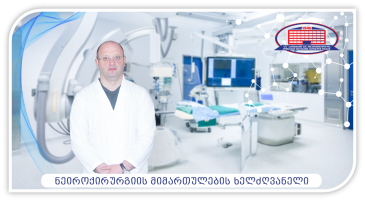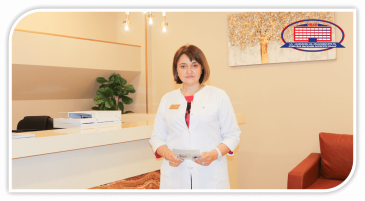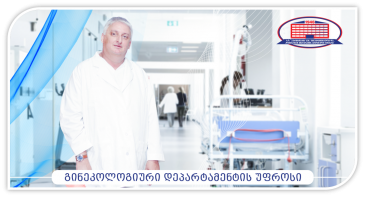Khatuna Berinashvili, a cardiologist at the National Center of Surgery is our respondent.
-What is your educational background, professional experience, and when did you join the National Center of Surgery?
-I graduated from Tbilisi State Medical University's Faculty of Medicine in 1999. In the year 2000, I began my professional career at Mtskheta Medical Center. In 2013, I joined the National Center of Surgery team. I also am a member of the Georgian and European Atherosclerosis and Cardiologists Association.
-When and why did you decide on your profession, and more precisely, the field in which you work?
-As is usually the case with little girls, medicine was a childhood goal, and the first patients were, of course, dolls. Then, this dream became a life mission. I went through a terrible period to achieve the goal, but I never gave up striving. Cardiology was a choice I made the moment I understood medicine was my vocation and ambition.
-What does being a doctor mean to you?
-I feel that medicine is a vocation, not just a job. The doctor does not take a break from their work. He/She are doctors everywhere, no matter where he/she is or what environment they are in. Love, sympathy for people, a genuine desire to help them, selflessness, and altruism all originate from within.
-What do you regard to be the most difficult aspect of your job?
-Medicine is a field that is always being updated and evolving. We must live in the age of modern technology, where we face new obstacles on a daily basis. These advancements must be accepted and implemented in our daily lives.
-What is the biggest desire and goal you want to achieve in your career?
-The most important objective and goal - many lives saved, many appreciative patients, and many "healthy hearts."
-What advice would you provide to those who are considering a career now?
-I recommend, that you completely comprehend the challenges of this vocation. Be kind to each patient and do your work with all of your heart and love.
-How do you feel about the latest medical challenge, COVID 19?
-The new coronavirus (COVID 19) has emerged as the greatest medical issue.
It should be mentioned, that this virus is sadly associated with a slew of consequences, the most common of which are thrombotic and endovascular lesions. Currently, a high proportion of coronary thrombosis occurs in such patients, and when they contact a cardiologist, the patient may not even be aware that they have COVID-19.
This is obviously a concern for a non-COVID clinic, but all patients who come to us receive decent care and are then assigned to the appropriate clinic. Working against this backdrop and in the already challenging field of medicine is difficult, but, the problems associated with this virus are gradually being conquered, and I believe that we will be able to beat it in the end.
-How do you envisage the field in which you work evolving after ten years?
-Georgia is one of the countries with the highest prevalence of cardiovascular diseases. Conservative treatment in this manner is playing a smaller and smaller part in the world, and various interventions are intervening in the first place. Development is a gradual process that requires time. Every new term in cardiology should be available to Georgian patients, and I am confident that it will be.









